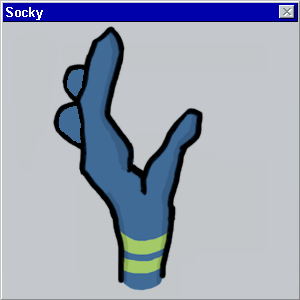The Sprouting Waters of Oʻahu and the Recovery of Indigenous Knowledge
November 5, 2021 7:20 PM Subscribe
"In Honolulu as elsewhere, to reshape our cities around the care of streams, rivers, lakes, oceans, and the lands they water would mean a core rebalancing of power from distal federal and commercial entities to local ones. A watershed urbanism in this sense would require a shift from an economy based in revenue extraction to one based in the maintenance of food systems and other natural resources, with its yield to be reinvested on the islands rather than off. The future of Oʻahu could exemplify a watershed urbanism that re-roots design and planning in Indigenous knowledge, and de-engineers more a century of settler colonialism." (QUITE a long read, but worth it.)
An Ahupuaʻa is a traditional Hawaiian land division, running from the mountaintops to the outer edge of the barrier reefs, that follows watershed drainage patterns along stream systems. As the Hawaiian Islands fight the ravages of storms and floods, resulting in buried and channelized rivers and streams overflowing their concrete channels and causing flooding and washouts in local neighborhoods to preserve tourist beaches like Waikiki, some activists are fighting for a return of indigenous, watershed-centric planning practices.
Sara Jensen Carr, for Places Journal, writes how such a watershed-centric urbanism could help not just Hawaii but urban areas around the world. Like most pieces in Places Journal, the essay is lengthy and leans towards the academic end of work for intelligent laymen, but it is well worth the time and effort.
More information about ahupuaʻa, with graphics, here, here, and here. (If like me you live in a very flat place, pictures that explain mountain/stream ecologies are super-helpful.)
An Ahupuaʻa is a traditional Hawaiian land division, running from the mountaintops to the outer edge of the barrier reefs, that follows watershed drainage patterns along stream systems. As the Hawaiian Islands fight the ravages of storms and floods, resulting in buried and channelized rivers and streams overflowing their concrete channels and causing flooding and washouts in local neighborhoods to preserve tourist beaches like Waikiki, some activists are fighting for a return of indigenous, watershed-centric planning practices.
Sara Jensen Carr, for Places Journal, writes how such a watershed-centric urbanism could help not just Hawaii but urban areas around the world. Like most pieces in Places Journal, the essay is lengthy and leans towards the academic end of work for intelligent laymen, but it is well worth the time and effort.
More information about ahupuaʻa, with graphics, here, here, and here. (If like me you live in a very flat place, pictures that explain mountain/stream ecologies are super-helpful.)
This is wonderful, thank you for posting! I'm only about halfway through and have been nodding vigorously and copying phrases to send to my colleagues and friends. I'm a drinking water policy person, but I recently moved from Hawai'i (I did my PhD in water-related things at UH Mānoa). A few initial reflections:
- She's bang-on about the "settler-colonial mathematics of subdivision" and how this leads to inequalities of space and ecology, as well as material goods. The microclimes in Honolulu are so real, and the more extreme heat settles into the working class/poorer areas. Everything made worse by climate change. This motif is obvious all over: here in Vancouver as well, which was made more stark during this summer's heat dome.
- "To call an ahupuaʻa a watershed therefore risks oversimplifying its centrality in communal life. But perhaps this risk, in turn, is predicated on a limited, mainland-centric view that understands a watershed as simply a unit in resource management. As the ahupuaʻa system demonstrates, water use is always cultural." This excerpt so perfectly encapsulates the tension (in my mind) between Western resource management practices and Traditional Ecological Knowledge that I'm reeling.
I'll come back after I finish!
posted by Paper rabies at 4:38 PM on November 6, 2021 [6 favorites]
- She's bang-on about the "settler-colonial mathematics of subdivision" and how this leads to inequalities of space and ecology, as well as material goods. The microclimes in Honolulu are so real, and the more extreme heat settles into the working class/poorer areas. Everything made worse by climate change. This motif is obvious all over: here in Vancouver as well, which was made more stark during this summer's heat dome.
- "To call an ahupuaʻa a watershed therefore risks oversimplifying its centrality in communal life. But perhaps this risk, in turn, is predicated on a limited, mainland-centric view that understands a watershed as simply a unit in resource management. As the ahupuaʻa system demonstrates, water use is always cultural." This excerpt so perfectly encapsulates the tension (in my mind) between Western resource management practices and Traditional Ecological Knowledge that I'm reeling.
I'll come back after I finish!
posted by Paper rabies at 4:38 PM on November 6, 2021 [6 favorites]
« Older Wheelchairs are Life, and Losing Them Can be Death | Plant obsessions are not a passion Newer »
This thread has been archived and is closed to new comments


A real problem is council/govt. has the monopoly of permitting/Consenting (which links back into finance), and of course requires rates payments; disdain and doing something new is not possible. Right now in NZ there is huge foment in the water space as many/most water bodies/rivers/coastal waters polluted from
• the wrong farming in the wrong places
• unplanned ever-expanding very low density housing
• huge pressure on rivers from extraction and gravel mining
• massive expansion of tree planting - which reduces river flows, much of NZ has not had trees since ~1000 AD and systems have adjusted to that
... NZ could teach the US a few things about high energy/Carbon foot prints. We are so wasteful of land and water here.
- but govt. here (appears) to be very pro large corps doing things, and there's a trend to centralise control and works - this started under the last right-wing govt so the problem appears to be the ministries.
I'll come back you your post in a week as just madly busy at mo'.
posted by unearthed at 11:30 AM on November 6, 2021 [3 favorites]